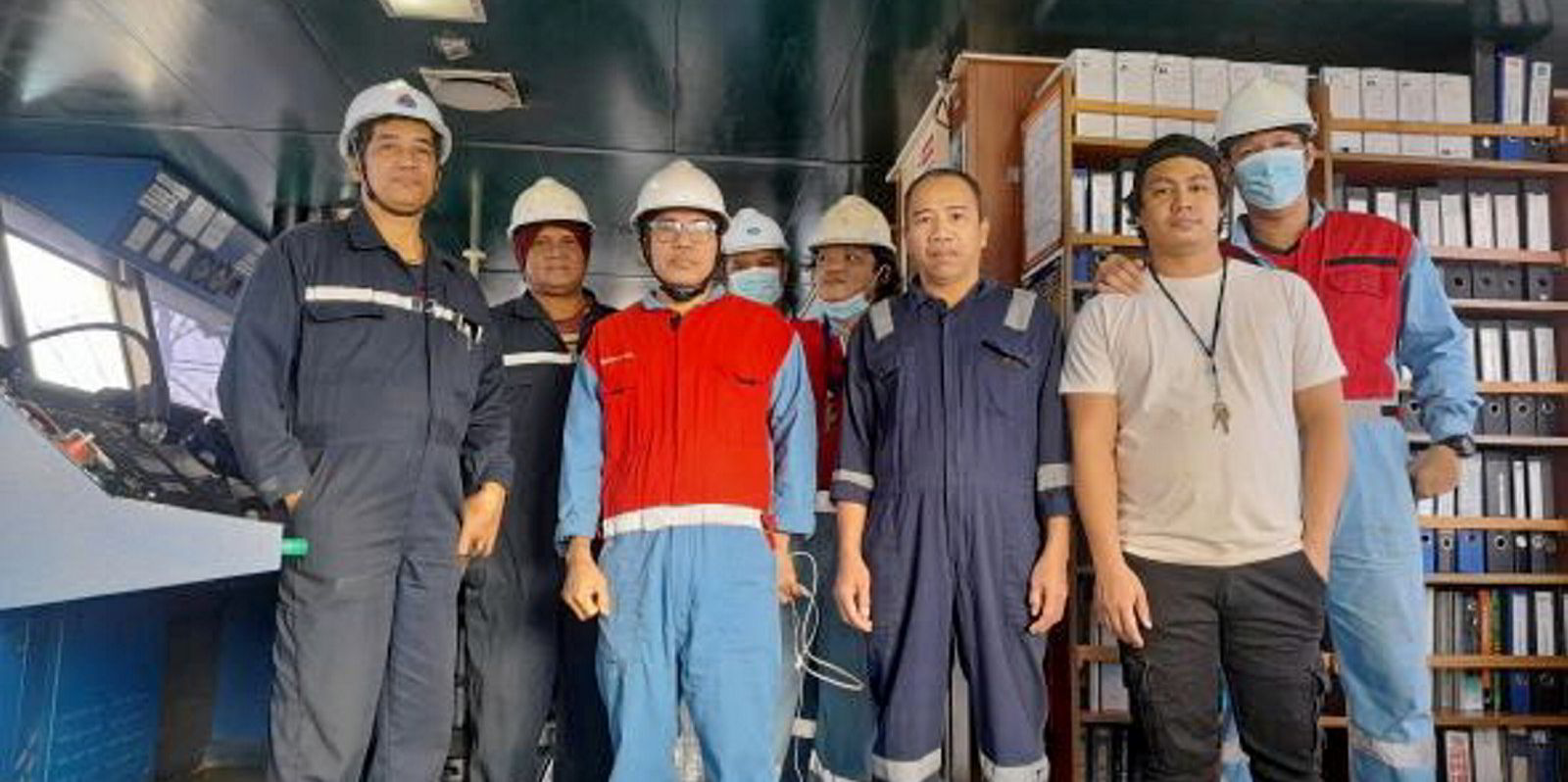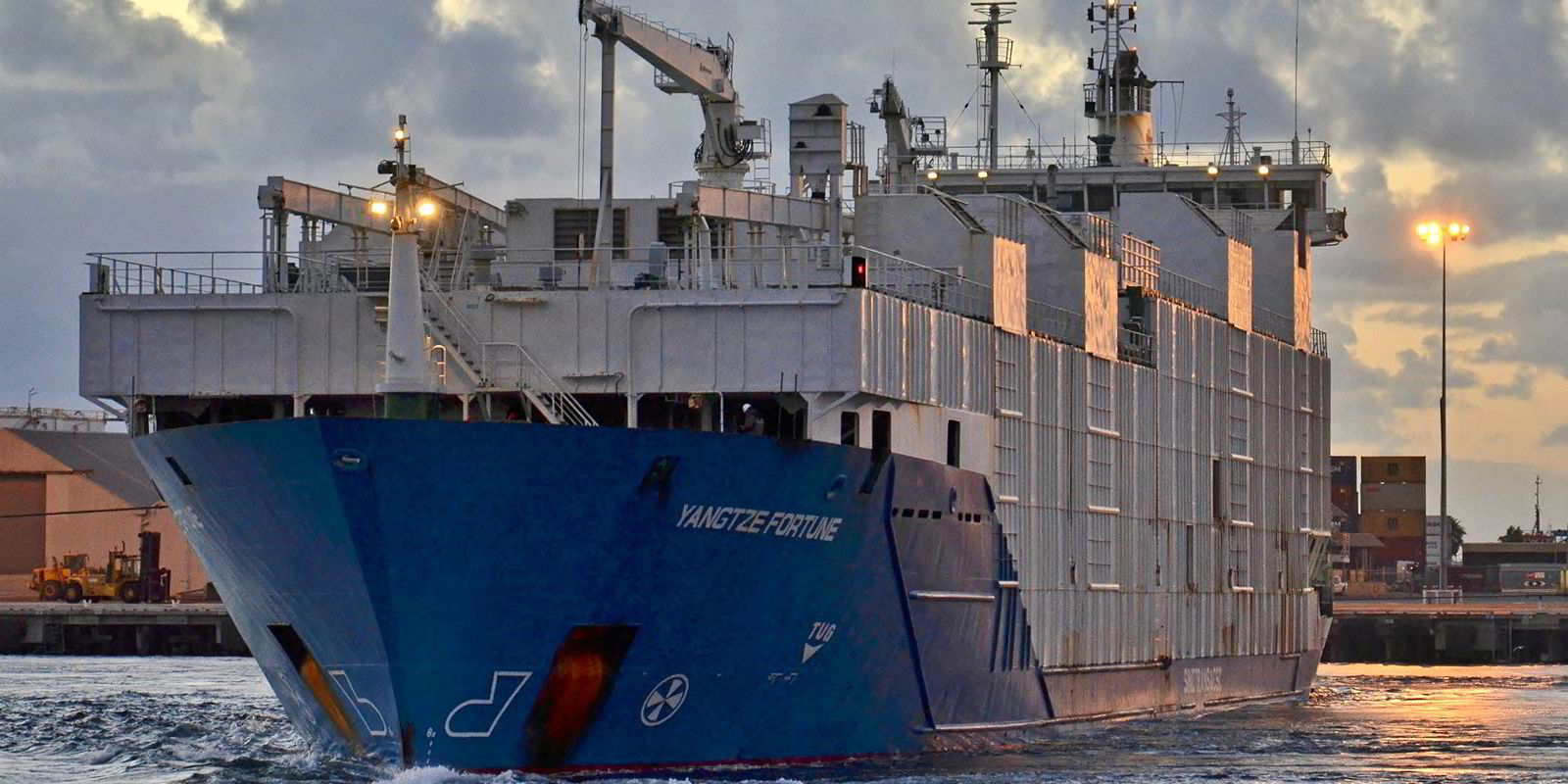Singapore has come in for criticism from the International Transport Workers’ Federation (ITF) over its handling of a recent crew-abandonment case.
The case involves the 11,670-gt Yangtze Harmony (built 2004) and sister ship Yangtze Fortune (built 2005), which were both abandoned by their owner in Singapore and Australia, respectively.
While the Yangtze Fortune’s crew went home in a matter of weeks, the crew aboard the Yangtze Harmony languished in the city-state for more than five months, according to the ITF.
“The two crew’s experiences of abandonment comes down to support for, promotion of, and adherence to crew members’ labour and human rights by the parties with obligations,” the ITF said.
“In Australia, the crew had clear communication about what was happening to their case. They knew how to access shore leave and medical care.
“The 16 who chose not to go home when the crewing requirement was dropped even enjoyed a Christmas dinner on board, courtesy of the Salvation Army, with good spirits helping to speed up the days until the ship’s sale and the seafarers’ many thousands in wages finally paid out.”
In addition, the Australian Federal Marshall is said to have kept the Yangtze Fortune’s crew updated on the ship’s progress towards its sale.
“This regular communication put emphasis on providing options to crew to consider, reiterating key information about their various labour and human rights, such as those under the Maritime Labour Convention,” the ITF said.
“The [Yangtze] Fortune did not have to endure months of uncertainty and confusion at their situation while the two vessels were under arrest by the respective countries’ authorities.

“Crew were kept updated about likely timelines and provided the reasons behind any delays. Efforts were made to avoid legal wrangling between parties involved in the ship’s arrest and sale, from getting in the way of seeing the seafarers at the centre of the abandonment from being paid or flown home at the earliest opportunity.”
Ian Bray, national coordinator of the Australian ITF Inspectorate, questions why the process took more than two months longer in Singapore than it did in Australia.
“Adhering to the rights of seafarers should not be a lottery for crew,” he said. “Their rights are their rights no matter where they find themselves being underpaid, exploited, or abandoned. All port states must be encouraged to respond more quickly in the interests of seafarer welfare.”
Steve Trowsdale, the ITF’s inspectorate coordinator, conceded that it is a “complex process” in any jurisdiction when a shipowner defaults on payments.
But he said authorities must realise that they have a clear responsibility under international law to act swiftly in cases where crew welfare is in jeopardy.
The Maritime Labour Convention (MLC), which Singapore ratified in 2011, specifies how cases of abandonment should be handled.
Trowsdale argues that Singapore may have “contravened the MLC” in delaying proceedings for more than five months.
Sandra Bernal, the ITF’s flags of convenience campaign network coordinator for Asia Pacific, said the contrast between the way authorities in Singapore and Australia handled the two abandonment cases showed how a port state’s response to an abandonment can make a huge difference to the immediate welfare and mental-health impacts for the affected crew.
“In Australia, efforts were made by authorities to inform crew of their rights, to check on their welfare, and to put their human needs above the commercial interests of the parties vying for a share of the ship’s sale value,” she said.
“There are elements of this kind of approach that I would like to see more widely adopted across port states.
“We have to remember that abandoned seafarers are not criminals — they are the victims in this situation. They are only there because their employer, the shipowner, let them down and did wrong by them.
“Crew should never be made to pay the price of their employer’s negligence — in money, time, or mental wellbeing.”





